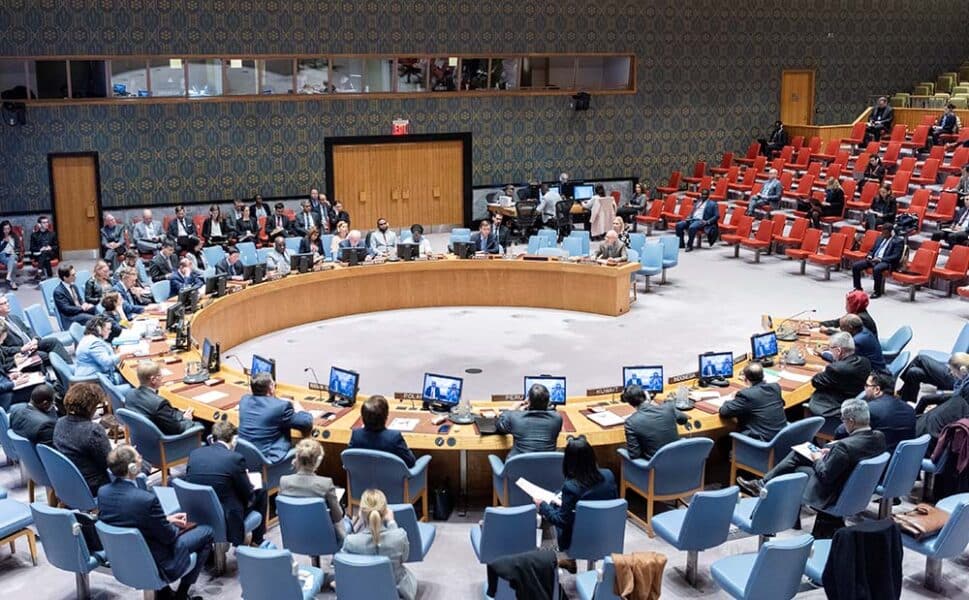Hypocrisy by powerful countries undermined the rules-based international order in 2023, making it harder to promote human rights and resolve the world’s most devastating wars, global civil society alliance CIVICUS announced in a new report.
In its 13th annual State of Civil Society Report, Johannesburg-based CIVICUS details how powerful states selectively chose to respect international laws, shielding allies but castigating enemies. The most blatant examples are countries that rushed to Ukraine’s defence against Russia’s invasion but backed Israel’s assaults on civilians in Gaza, and vice versa.
“Armies, rebels and militia around the world committed horrific human rights abuses in 2023 because they knew they could get away with it thanks to a flailing international system full of double standards,” said Mandeep Tiwana, CIVICUS Chief Officer of Evidence and Engagement. “Starting with the UN Security Council, we need global governance reform that puts people at the centre of decision making.”
We need global governance reform that puts people at the centre of decision making

The State of Civil Society Report assesses activism around the world in the past year and analyses the year’s events from a civil society perspective. The report is based on over 250 interviews and articles published by CIVICUS covering over 100 countries and territories.
Besides its findings on global governance and conflict, the new report details civil society’s role in addressing climate change, protecting democracy and expanding gender rights.
The report shows that with powerful states repeatedly blocking international action, grassroots civil society organisations were central to responding to major crises in 2023.
In Ukraine, volunteers documented human rights violations and helped with reconstruction of devastated cities, while Sudanese youth groups delivered humanitarian aid in the worst-hit conflict zones and offered solutions to achieve accountable civilian governance. In Myanmar, civil society led the way with ideas to restore democracy alongside peace. Local Palestinian journalists were the world’s key lifeline to first-hand information about the war in Gaza.
But instead of protecting such members of civil society, fighters and their state backers routinely undermined or even attacked them over the last year. In Gaza, for instance, Israel’s military killed record numbers of journalists. Meanwhile, states criminalised activists who supported migrants and refugees fleeing conflict.
“Attacks on civil society were the norm in 2023, even from governments that claim allegiance to democratic values,” said Tiwana. “The prevalence of such abuses proves the international system desperately needs reform. We are facing an acute crisis of moral leadership on the international stage.”
War zones were not the only places where the powerful tried to silence civil society. The report shows that authoritarian governments repressed activists at major meetings from the COP28 climate change conference in Dubai to the G20 meeting in New Delhi. Even at the UN General Assembly and Sustainable Development Goals summit in New York, bureaucratic blockages resulted in exclusion of many civil society representatives from decision-making spaces.
The report urges global governance reform at September’s international Summit of the Future at the UN headquarters in New York, including new rules to moderate or reduce veto powers at the Security Council.
Civil society has proposed numerous avenues for reform to increase people’s participation in global governance systems. These include calls for the creation of a UN Civil Society Envoy to better foster people’s participation at the world body as well as a UN Citizen’s Initiative to enable people to bring matters before the UN for resolution. Civil Society also calls for a UN Parliamentary Assembly to give directly-elected people’s representatives a say in UN decision-making. All of these suggestions would increase people’s oversight and contribution to global governance.
“Throughout 2023, civil society offered workable, people-centered solutions to the world’s most pressing problems,” said Tiwana. “But time and again, global institutions and leaders preferred to sideline activists rather than work with them to achieve positive change. If humanity is to overcome today’s multiple overlapping crises, civil society must have a seat at the table.”
CIVICUS is co-convenor of the „We The Peoples“ campaign for inclusive global governance together with Democracy International and Democracy Without Borders.




